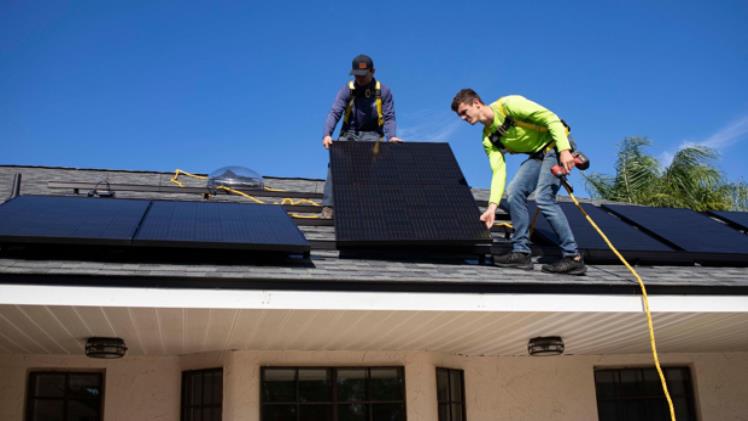Is Solar the Same for Homes vs Businesses?
When it comes to solar energy, the answer is both yes and no. While the basic principles of harnessing solar power are the same for both homes and businesses, there are some key differences to consider.
For homeowners, solar panels can provide a significant amount of electricity needed for day-to-day activities. Homeowners can also benefit from the tax credits and incentives offered by their local government or utility company, as well as lower electric bills. In states like Texas where the energy market is deregulated, consumers are provided with the tools and information to stay on top of energy choice options and have the power to choose electricity plans.
For businesses, solar is a great way to reduce energy costs. The up-front cost of installing solar panels for a business may be higher than for a home, but the return on investment can be significantly larger due to the amount of electricity used in a commercial setting. Business owners can also claim tax credits for their solar installation and may be eligible for additional incentives from local utilities or government agencies.
Both homeowners and business owners should always do their research on available options before making any decision about solar energy. Local regulations, incentive programs, installers, and financing options vary by location. The cost of installation, maintenance, and the amount of energy produced from solar panels also depends on the size and type of system chosen as well as its placement. Every potential solar customer needs to understand their specific needs when deciding if a residential or commercial solar system is right for their situation.
Residential Solar
When working with professional solar services, residential solar system installation and maintenance is a straightforward process. The main goal of installing solar panels in homes is to offset energy costs. Homeowners may be able to save money by using less electricity from their utility provider, or they may be able to generate enough energy to completely power the home and even sell the excess back to the grid.
Why should you consider solar as a homeowner? Solar panels reduce or eliminate energy bills, increase property value, and offset emissions. Additionally, they are a great investment that can provide you with savings on your utility bill for years to come.
When choosing solar for a business, the goals are often different. Businesses use solar to save money on energy costs and increase their profits by taking advantage of government incentives and tax credits. Additionally, businesses may be able to generate more electricity with larger installations that can power entire operations or even sell the excess back to the grid.
The installation process for both homes and businesses is similar and can be completed in a few days or weeks depending on the size of the system. Professional installers will inspect your property, identify any potential obstacles and develop an installation plan before deploying the equipment needed to complete the project.
The primary difference between solar for homes vs businesses is that homes typically use smaller systems while businesses may require a larger setup. Also, home installations generally use solar panels that are mounted on the roof while businesses sometimes have ground-mounted systems to maximise efficiency. Furthermore, incentives and rebates for business owners are often more generous.
The best way to determine if solar is right for your home or business is to consult with professionals who specialise in solar installations. They can provide insight into the potential benefits and savings that are available, as well as help you to evaluate different installation options. It is important to consider all factors when deciding on whether or not to move forward with a solar energy system. Ultimately, you should select an installation method that will generate maximum efficiency while providing economic benefits!

